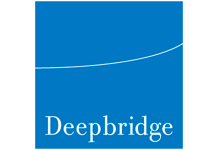Tackling Your Tax Planning with EIS and Knowledge Intensive Funds

- Madeleine Ingram, Director at Calculus
- 23.01.2024 11:15 am #tax #planning
As another tax year draws to a close, investors may be wondering how they can make their investments work harder for them.
When it comes to tax planning, pensions, and ISAs are key, but what’s next? One route worth exploring is HMRC-approved EIS funds also called Knowledge Intensive (KI) EIS funds.
Why approved funds?
Investors can leverage an HMRC-approved fund to secure income tax relief of up to 30%, enjoy unrestricted tax-free capital gains, and benefit from capital gains tax deferral relief, loss relief, and full inheritance tax relief. One notable advantage of being part of an approved fund is that investors can claim their 30% income tax relief either in the tax year the fund closes or carry it back to the preceding tax year.
In contrast, investors participating in regular, unapproved EIS funds must claim their income tax relief when the fund invests in the underlying companies, a process that may span multiple tax years and can pose greater challenges for tax planning. The carry-back option is also available for unapproved EIS funds, as is tax-free capital gains, capital gains tax deferral relief, loss relief, and full inheritance tax relief.
The EIS and its benefits
In the expanse of investment opportunities, the EIS emerges as a relatively lesser-known yet powerful investment tool that presents investors with potentially significant returns and considerable tax benefits. Devised by the UK government to foster investment in small and burgeoning enterprises, the EIS offers a generous incentive framework crafted to attract private investors.
At the core of EIS sits its impressive suite of tax reliefs:
- Income Tax relief: Investors can avail themselves of up to 30% Income Tax relief on investments. An individual investing £100,000 could reduce their Income Tax liability by £30,000.
- Capital Gains Tax (CGT) deferral: EIS enables investors to postpone Capital Gains Tax liabilities on profits generated elsewhere if the gains are reinvested in qualifying EIS shares. This deferral serves as a valuable tool for investors strategically managing their tax obligations.
- Inheritance Tax (IHT) exemption: EIS investments, held for a minimum of two years, enjoy full exemption from Inheritance Tax. This renders EIS an appealing choice for individuals aiming to transfer wealth to future generations while minimizing tax implications. Powerful when used alongside CGT deferral relief, where upon death, a CGT liability dies with the investor.
- CGT Relief: EIS investing is a high risk, but it can also be a high reward. To that end, any gains made through EIS are uncapped and free of Capital Gains Tax – enabling you to enhance the return on your investment.
- Loss Relief: Acknowledging the inherent risks associated with investing in smaller enterprises, EIS provides an additional tax safety net through loss relief. In case of an unprofitable (less than 0.7x return) EIS investment, investors can offset the loss against their income or capital gains, thereby further mitigating potential financial setbacks.
Investments must be held for at least three years to retain the Income Tax Relief and CGT relief. There is no investment limit for IHT relief or CGT deferral relief, however, the maximum investment allowed for Income Tax relief is £1m per tax year (£2m for Knowledge Intensive EIS companies).
The Knowledge Intensive EIS and its benefits
Certain companies that qualify for EIS relief also meet the criteria for being “Knowledge Intensive Companies” which is set down in the EIS legislation. Typically, a Knowledge Intensive Company carries out research and development or innovation to create intellectual property (IP). Knowledge Intensive Companies tend to be young, innovative businesses employing skilled individuals as they seek to create new technology or IP. Knowledge Intensive EIS funds are required to invest at least 80% of their capital in Knowledge Intensive Companies.
In April 2023, Calculus closed its first Knowledge Intensive EIS fund, which aims to return £2 tax-free for every £1 invested. The launch of the Calculus Knowledge Intensive EIS Fund 2 focuses on two of the UK’s fastest-growing sectors - technology and healthcare companies. It follows a strong period of exits for the firm. In the past 3 years, Calculus has exited 19 companies, with an average return on investment of over 2x. The new Fund offers investors access to exciting, innovative businesses underpinned by a strong investment landscape underpinned by the UK’s first-rate research universities, robust Government support of KI businesses, and a thriving M&A market.






















